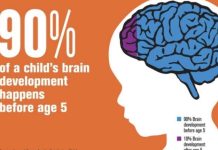Africa-Press – South-Africa. DURBAN – Absa and local training NGO WeThinkCode_ have partnered to look into the the transformation of South Africa’s digital skills landscape by reforming youth employability.
The focus of both of the entities is on candidate selection and matching, a demand-led curriculum, retention and ultimately the employment of graduates. This partnership looks to see if candidates show other aptitudes for coding and programme design rather than being strong in maths and science.
The partnership which started in 2016 has led Absa to now sponsoring 60 out of the 300 annual WeThinkCode_ students.
“As a top investor in higher education in South Africa, Absa has applied a more rigorous approach to how we fund projects, now tracking the success of students we support, from initial application to curriculum through to finding employment,” said Makano Morojele, Head of Education Reform and Employability at Absa.
Nyari Samushonga, CEO of WeThinkCode_ said, ”What distinguishes Absa as a funding partner is their hands-on approach. They’re deeply involved in the design of WeThinkCode ‘s syllabus programme as well, ensuring that the skills being taught are relevant to the market. Plus, there’s an added awareness of the importance of mentoring and support, critical for some young students because of the gaps in their secondary education”.
There is a 98 percent employment rate among WeThinkCode_’s programming graduates.
Morojele said, “Our big picture is to align private and public sector skills needs with those offered at public institutions so that our syllabus mechanisms are in sync. We have a huge unemployment crisis and both the public and private sector institutions need to be able to scale education at pace”.
The approach implemented by Absa and WeThinkCode_ combines the importance of holistic education and labour market relationship-building, which is more critical, as Covid-19 has accelerated the need to address both the shortage of digital skills and unemployment in South Africa.
“It’s time to shift into new ways of thinking, embrace the coalition of the willing and accelerate demand-led skills development, concluded Morojele.
BUSINESS REPORT ONLINE






